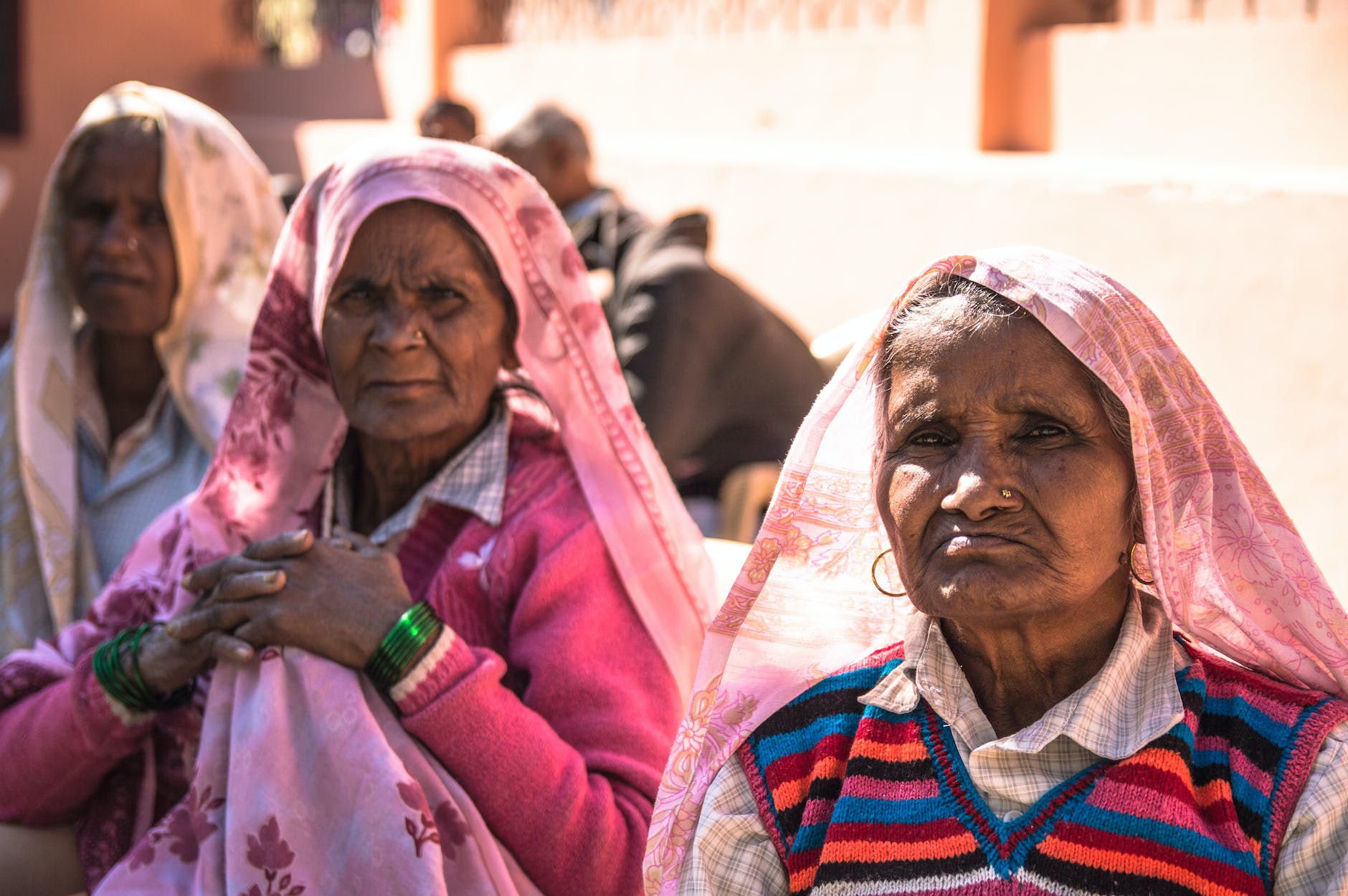Bhakti: Exploring the Rich Tradition of Devotion & Love

Hey there, amazing readers! 🖐️ Just a quick note: yes, we know there are a lot of ads here. Trust us, we get it—it’s not the prettiest look, but they help us keep this blog alive and kicking. Those pesky little ads cover the costs of all the behind-the-scenes magic, from hosting and tech stuff to creating content we hope you’ll love.
We’re committed to delivering quality posts, and your support (even just sticking around despite the ads) means everything to us. So, bear with us, and thanks for helping us keep the good vibes rolling. Now, on to the fun stuff! 😉
TRANSLATE BUTTON AT THE END OF THE ARTICLE
A Quick Introduction
Bhakti is a Sanskrit term that can be translated to mean “devotion” or “love.”
In the Hindu tradition, bhakti refers to a spiritual path that emphasizes the worship of a personal deity or the Divine through devotional practices such as prayer, singing, and the offering of offerings.
Bhakti has been a central part of Hinduism for centuries, and its influence can be seen in many other spiritual traditions throughout the world.
This article will explore the concept of bhakti in depth, looking at its history, philosophy, and practices.
Historical Context
Bhakti has its roots in ancient India, where it emerged as a response to the rigidity of the Vedic tradition.
The Vedic tradition was focused on the performance of rituals and sacrifices as a means of pleasing the gods and attaining spiritual merit.
Bhakti, on the other hand, emphasized the cultivation of a personal relationship with the Divine through love and devotion.
The Bhagavad Gita, a sacred text in Hinduism, is considered a seminal work on the concept of bhakti, and it presents the idea that devotion to God is the highest form of spiritual practice.
Philosophy of Bhakti
The philosophy of bhakti is rooted in the idea that the Divine is an all-pervading presence that is beyond human comprehension.
However, through the practice of devotion, one can develop a personal relationship with the Divine.
Bhakti is seen as the most direct path to the Divine, as it requires no special knowledge or intellectual ability.
Bhakti is also seen as a path of surrender, as the devotee gives up their ego and surrenders to the will of the Divine.
Practices of Bhakti
There are many practices associated with the path of bhakti, and these can vary depending on the specific tradition and the personal preferences of the individual devotee.
Some common practices include:
Kirtan
Kirtan is the practice of chanting the names of God or the Divine.
It is often done in a group setting, and the repetition of the names is seen as a form of meditation that helps to purify the mind and connect with the Divine.
Puja
Puja is the practice of offering worship to a personal deity or the Divine.
This can involve the offering of flowers, incense, and other items, as well as the recitation of prayers and mantras.
Seva
Seva is the practice of selfless service to others, particularly those in need.
It is seen as a way of expressing devotion to the Divine by serving others and recognizing the Divine in them.
Japa
Japa is the practice of repeating a mantra or sacred phrase.
It is often done using a mala or prayer beads, and the repetition of the mantra is seen as a way of focusing the mind and connecting with the Divine.
Meditation
Meditation is a common practice in many spiritual traditions, including bhakti.
It is seen as a way of quieting the mind and connecting with the Divine within.
Reading and studying sacred texts
Many bhakti traditions place a strong emphasis on the study of sacred texts such as the Bhagavad Gita, the Ramayana, and the Puranas.
These texts are seen as a source of wisdom and guidance on the path of bhakti.
Types of Bhakti Bhakti can be divided into several different types, each of which emphasizes a different aspect of devotion.
Some of the main types of bhakti include:
Shanta Bhakti
Shanta bhakti is the path of peaceful devotion.
It is characterized by a sense of calm and detachment, and the devotee seeks to attain a state of inner peace and tranquility through their devotion.
Dasya Bhakti
Dasya bhakti is the path of servitude.
The devotee sees themselves as a servant of the Divine and seeks to serve the Divine in all aspects of their life.
This type of bhakti is often associated with the devotion of Hanuman, the monkey god.
Sakhya Bhakti
Sakhya bhakti is the path of friendship.
The devotee sees the Divine as a friend and seeks to cultivate a personal relationship with the Divine based on love and companionship.
This type of bhakti is often associated with the devotion of Krishna, who is seen as a friend and companion to his devotees.
Vatsalya Bhakti
Vatsalya bhakti is the path of parental love.
The devotee sees themselves as a parent to the Divine and seeks to nurture and care for the Divine in the same way that a parent cares for a child.
This type of bhakti is often associated with the devotion of Yashoda, the mother of Krishna.
Madhurya Bhakti
Madhurya bhakti is the path of romantic love.
The devotee sees themselves as a lover of the Divine and seeks to cultivate a personal relationship with the Divine based on love and romance.
This type of bhakti is often associated with the devotion of Radha, the consort of Krishna.
Nama Bhakti
Nama bhakti is the path of devotion through the repetition of the Divine Name.
The practice of chanting or reciting the Divine Name is central to this path of bhakti.
It is believed that through constant repetition of the Name, one can purify the mind and cultivate a deep connection with the Divine.
Nama bhakti is often associated with the practice of japa, the repetition of a mantra or Divine Name.
Seva Bhakti
Seva bhakti is the path of devotion through selfless service.
The devotee sees themselves as an instrument of the Divine and seeks to serve others in the world as a way of serving the Divine.
This type of bhakti emphasizes the importance of selflessness and compassion, and it is often associated with the practice of karma yoga.
Jnana Bhakti
Jnana bhakti is the path of devotion through knowledge and wisdom.
The devotee seeks to understand the nature of the Divine through study, contemplation, and meditation.
This type of bhakti emphasizes the importance of understanding the nature of the Divine, and it is often associated with the practice of Vedanta.
Prema Bhakti
Prema bhakti is the path of devotion through love.
The devotee seeks to cultivate a deep and unconditional love for the Divine, seeing the Divine in all beings and all things.
This type of bhakti emphasizes the importance of the heart, and it is often associated with the practice of bhakti yoga.
Bhakti and Devotional Art
Bhakti has inspired a rich tradition of devotional art in Hinduism, including painting, sculpture, and music.
These works of art are created as a way of expressing devotion to the Divine and inspiring others to cultivate their own devotion.
Devotional art often depicts the Divine in various forms, such as Krishna, Shiva, or the Divine Mother, and is used as a way of connecting with the Divine and deepening one’s own devotion.
Bhakti and Social Justice
In recent years, there has been a growing movement of social justice activists who draw on the principles of bhakti as a way of inspiring social change.
These activists see the path of bhakti as a way of cultivating compassion and selflessness, and they seek to apply these principles to the struggle for justice and equality.
Bhakti-inspired social justice movements often focus on issues such as environmental justice, human rights, and economic inequality.
The Role of Bhakti in Modern Times
Bhakti continues to be a vibrant and important part of Hinduism today, with millions of people around the world practicing devotional worship in various forms.
Bhakti has also influenced many other spiritual traditions, including Buddhism, Jainism, and Sikhism.
In modern times, bhakti has taken on new forms, such as devotional music and the use of social media to connect with other devotees.
Conclusion
In conclusion, bhakti is a path of devotion and love that is central to Hinduism.
It emphasizes the cultivation of a personal relationship with the Divine through practices such as chanting, worship, selfless service, and meditation.
There are many different types of bhakti, each emphasizing a different aspect of devotion, and the practice of bhakti continues to be a vibrant and important part of Hinduism today.
Whether through art, social justice, or personal practice, bhakti offers a path for deepening one’s connection with the Divine and cultivating compassion and love for all beings.

The Enlightenment Journey is a remarkable collection of writings authored by a distinguished group of experts in the fields of spirituality, new age, and esoteric knowledge.
This anthology features a diverse assembly of well-experienced authors who bring their profound insights and credible perspectives to the forefront.
Each contributor possesses a wealth of knowledge and wisdom, making them authorities in their respective domains.
Together, they offer readers a transformative journey into the realms of spiritual growth, self-discovery, and esoteric enlightenment.
The Enlightenment Journey is a testament to the collective expertise of these luminaries, providing readers with a rich tapestry of ideas and information to illuminate their spiritual path.
Our Diverse Expertise 🌟
While our primary focus is on spirituality and esotericism, we are equally passionate about exploring a wide range of other topics and niches 🌍📚. Our experienced team is dedicated to delivering high-quality, informative content across various subjects ✨.
To ensure we provide the most accurate and valuable insights, we collaborate with trusted experts in their respective domains 🧑🏫👩🏫. This allows us to offer well-rounded perspectives and knowledge to our readers.
Our blog originally focused on spirituality and metaphysics, but we’ve since expanded to cover a wide range of niches. Don’t worry—we continue to publish a lot of articles on spirituality! Frequently visit our blog to explore our diverse content and stay tuned for more insightful reads.





